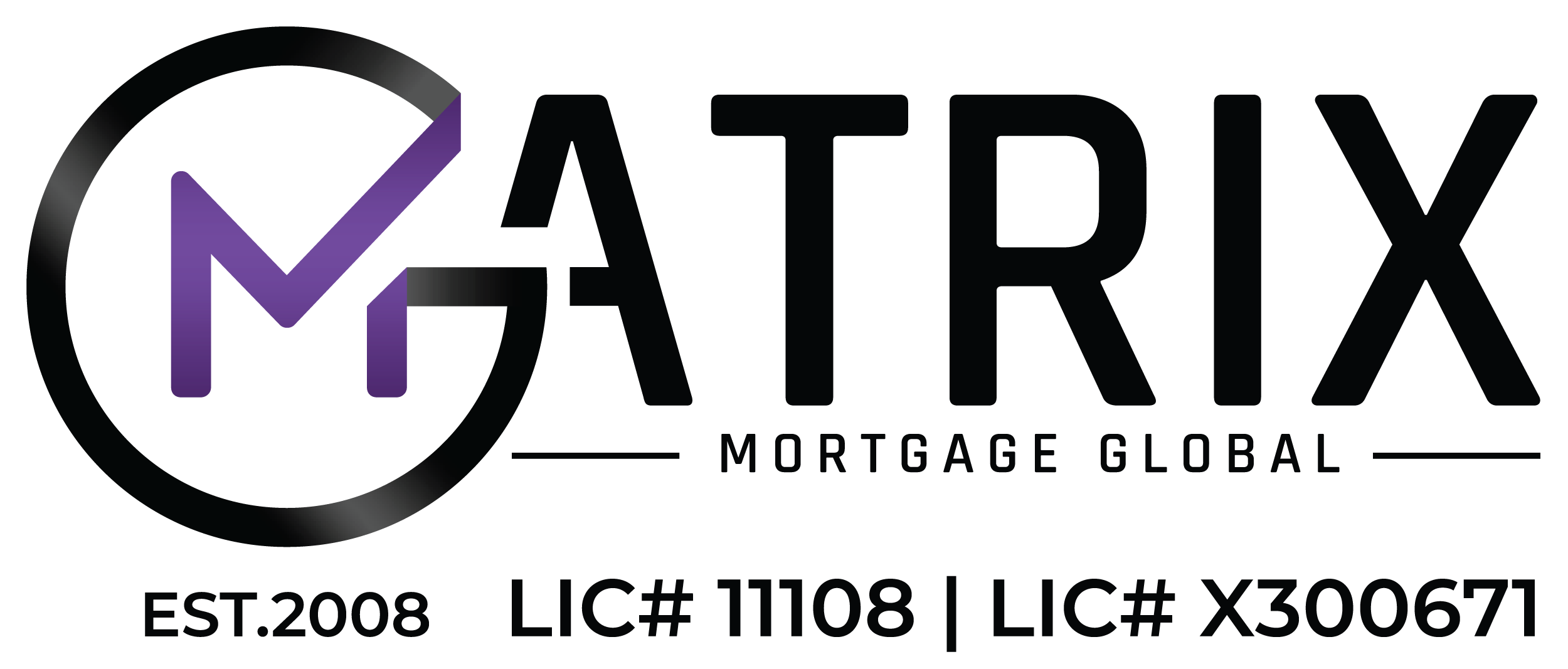
All you need to about a home equity loan
A home equity loan is when an individual takes out a loan using the built-up equity in their home as collateral. Commonly called a second mortgage, this loan type is available for both residential and non-residential properties. However, for the loan to be approved, the property must have a valid title or be entirely constructed by the borrower. Based on the current market value, the lender will calculate the value of the property after deducting any outstanding home loan of the borrower. The term of the loan can be up to fifteen years. Matrix Mortgage Global is the name you can rely on for expert assistance in home equity loans.
Pros of a home equity loan:
-
Fixed interest rate
The rate of interest for a home equity loan is fixed, unlike a HELOC. The borrower will exactly know how much is required to pay as repayment and what is the interest rate.
-
Low-interest rates
In addition to home equity loans having a fixed rate of interest, the interest rate is also low, as they are secured by the value of your property. It is an affordable option, unlike an unsecured loan.
-
Long repayment terms
The repayment terms for a home equity loan can be for as long as twenty years. In addition to their low-interest rates, it is a suitable option as the monthly repayment instalments are competitive.
-
Tax write-offs
One of the pros of a home equity loan is the tax write-off. The interest paid can be deductible for up to $100,000
Cons of a home equity loan
-
There is a chance of losing your house
Since the property is used as collateral to secure the loan, in the event the borrower defaults, they risk the chance of losing their house. If they fail to make their scheduled loan repayments, the bank can foreclose the property. Furthermore, if the value of the property decreases, the borrower will end up owing more.
-
The credit score of the borrower must be good to get the loan approved
Even though a home equity loan offers a low-interest rate than an unsecured loan, this type of loan is given to borrowers who have a good credit score.
-
The borrower must have significant equity in their home
In order for the borrower to qualify for a home equity loan, they will need to have at least 15 to 20% equity in their property.
-
The balance amount will need to be paid off if you wish to sell the property
Since a home equity loan is tied to your property, if you choose to sell your house, you will be required to pay off the balance loan amount. In certain cases, the funds received can be utilized to pay off both loans. Bear in mind, if the value of the property lowers, it could put you in a tight spot.
Using a home equity loan for debt consolidation
If you are struggling to make your scheduled monthly repayments, debt consolidation is a great solution that combines all your high-interest payments into a single easy-to-make loan making it stress-free for you. If you are considering paying off your unsecured debt, then you should consider using a home equity loan for debt consolidation. A borrower is more likely to be sound financially if they have significant equity in their property. However, it may not be the right choice for everyone. Because, if you are an individual who fails to take responsibility for managing your debt and repaying on time, you can end up getting your property foreclosed.
Below mentioned are the advantages and disadvantages of using a home equity loan for debt consolidation:
Advantages:
-
Only one payment is to be made
When you use a home equity loan to consolidate your debt, your life gets stress-free. It can be a hassle to juggle a lot of bill payments every month. Having just one payment significantly lowers the financial stress of the borrower.
-
Lower monthly payments
Taking out a home equity loan for consolidating your debt will lower your monthly payments since the loan term is longer and the interest rates are low. If your monthly budget is tight, debt consolidation is exactly what you need to get out of debt.
Disadvantages:
-
Your property is used as collateral
The main reason for using one’s home for debt consolidation is that your home is used as collateral for the loan. If you fail to make your monthly repayments, your property could end up being foreclosed. You should consider consolidating your debt if you are struggling to make your existing payments.
-
Load of debt will increase
While a home equity loan is useful in consolidating your debt, it only helps if the spending is limited. For instance, if you have high credit card debt, and continue to make small payments, you are only making your debt worse. Now, you will end up paying home equity loan payments, including credit card payments. By consolidating your debt, you will address the concerns that put you in debt.
-
Potential payment of certain fees
Since a home equity loan uses the current value of your home to calculate how much money you can borrow, you may be required to pay for the new appraisal of your house. Since a home equity loan is considered a second mortgage, you might not need to pay for closing costs. If you have a large amount of debt to consolidate, paying off these fees will make sense.
Schedule an initial consultation with the experts at Matrix Mortgage Global today!
If you are looking to apply for a home equity loan or to find out more details about our mortgage services, please do not hesitate to book an appointment with our professional brokers at Matrix Mortgage Global today. When it comes to home equity loans, we are the name you can rely on.

